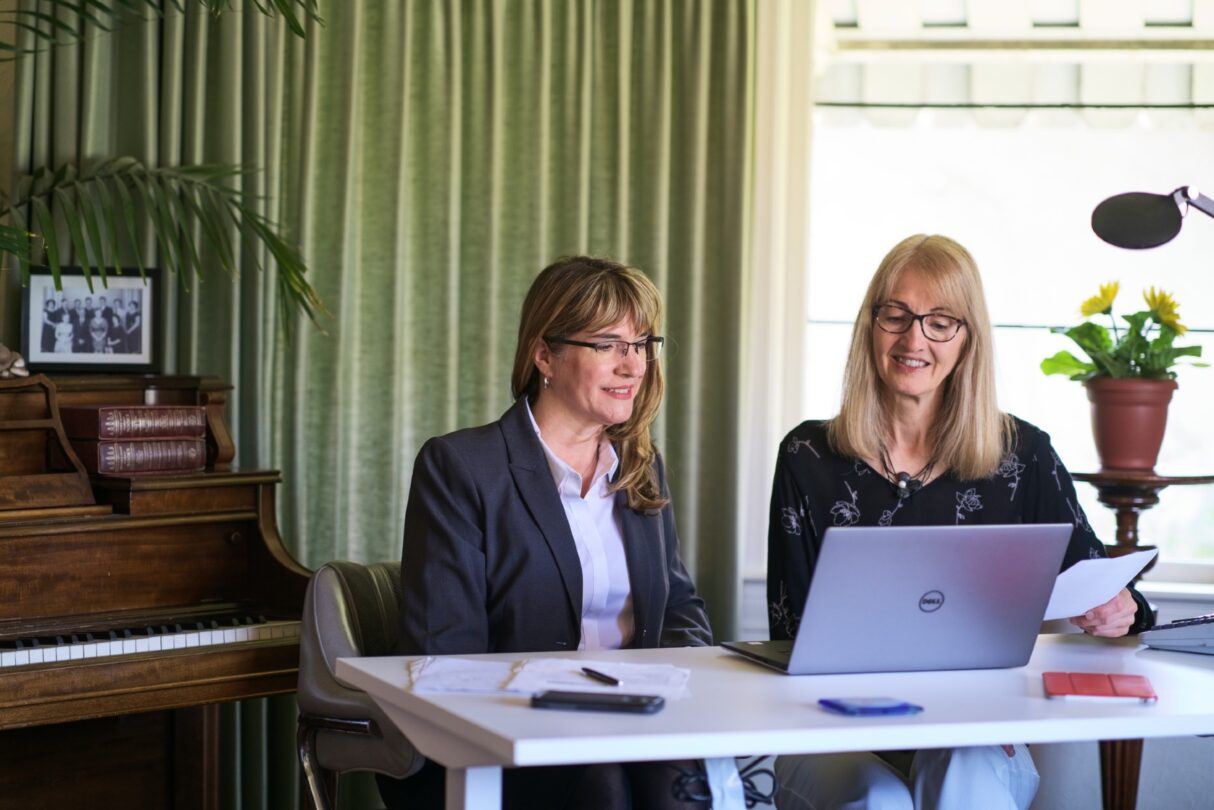How chief operating officers can deal with complexity
Discover a series of C-suite top tips to help you and your business overcome challenges, complexity and uncertainty.

The chief operating officer (COO) role is unique. There is no single definition of what the job of chief operating officers entail because it hinges on the demands of the CEO and the business in question.
As a COO, you could have responsibilities as wide-ranging as:
- Making the CEO’s vision a reality
- Helping the CEO to be more effective
- Keeping the business on track
- Turning ideas and strategies into a scaled-up operation
- Managing evolving customer expectations
- Making business-as-usual happen every day.
You could be the person stepping up in times of uncertainty. Whether it’s remote working, refactoring production lines, changing business models, or dealing with complexity, you might be dealing with it all.
In this episode of Agility Unleashed, the podcast series from Sage that helps Britain’s businesses pick their way out of the pandemic, a group of business leaders from a variety of industries share their thoughts and insights on how COOs can deal with complexity.
Here’s what we cover:
Overcoming challenges from the past year
How to do strategy as a business leader today
Developing and demonstrating resilience
Overcoming challenges from the past year
As a COO, you may have a critical role in managing challenges due to the coronavirus pandemic.
Instead of business as usual, Deloitte suggests that you should focus on operational resilience, which includes:
- Managing remote working
- Protecting employees and managing operations for those working in the office
- Managing fluctuations in revenue and operating margin
- Managing customer disruption.
Coronavirus impacted some industries more than others.
Naturally, one of the worst affected was the events industry, which saw the cancellation of many events in 2020 due to the restrictions imposed by the pandemic.
Charlie Dabney is the Head of Operations for Global Mobility Executive, which arranges events worldwide for global mobility executives to network and discuss challenges, corporate industry trends and experience.
Here, he speaks of the impact of coronavirus, providing insight into how COOs can deal with increasing business complexity.
He says: “We were in Amsterdam in March 2020 for a session, where it hit us that the situation was quite bad.
“We put in rules like no shaking hands at the event, but a lot of people still pulled out on the day.
“By the end of March, it was full lockdown, so that’s where we had to pivot and look towards virtual events. We’d already planned for the rest of the year to be in Australia and Singapore.
“It was scary as an events company.”
As the operations manager, Charlie had to do lots of learning. Global Mobility Executive had already investigated running virtual events before the pandemic, but that had to be fast-tracked, with all events going virtual on Zoom.
Fortunately, the business is still rolling and kept its community, despite the complete absence of in-person events.
Charlie says: “Everyone still wanted to stay connected, and that’s what we were there for, especially in those times.”
Handling remote working
Daniel Holmberg is the Head of Sales at workforce management company Quinyx. This technology company offers workforce time and attendance management services to businesses in industries such as retail, logistics, hospitality, and healthcare.
Daniel says;’ “I think one trend we see at a high level that COOs will have to deal with and is here to stay is flexible working.
“Employees are going to require a lot more flexibility with the way employers operate. The COO needs to ensure that as an employer, their business offers tools and flexibility in the way employees want.”
Businesses had to manage the practicalities of getting people working at home, which they did at various levels of efficiency based on the technology platforms they were using.
Adam Reynolds, CEO of WebExpenses, says: “As we got to April and May of last year, organisations were working out the coronavirus wasn’t going to go away in four to six weeks and that practically, it could be six months, a year, or longer.
“That was when COOs had to make decisions in moving their businesses forward.
“What we did at the business was ask if anyone is struggling, whether that’s from a childcare, flexibility, or isolation perspective, and how we could help manage that.
“You don’t have the water cooler conversations as much, so you have to go out there proactively.”
How to do strategy as a business leader today
Adam believes that from an organisational standpoint, the way your business works may have to change. For example, instead of focusing annually on one core strategic plan, you may have to review it on a quarterly, monthly or even weekly basis.
Adam suggests that COOs should look to talk about strategy with smaller teams on a more regular basis, focusing on action-based deliverables, where team leaders have accountability for specific projects, with actual ownership for driving them through.
Adam says: “What you should do as an organisation is ensure you are putting in projects that put you in a better position to when you started.”
Whether handling different ways of working or dealing with different business models, uncertainty caused by coronavirus may have forced COOs into making strategic decisions quickly, perhaps without having all the data points and research.
In a time of uncertainty, you may also need to change your usual business key performance indicators (KPIs).
Instead of fixating on a target that is impossible due to uncertainty caused by specific events, you need to create KPI targets you can reach if people in your business are working hard to the same objectives.
Coronavirus has forced COOs to take a step back and look at their operations in more detail, examining if it’s fit for purpose in uncertain times.
Adam says: “There’s a badge of about being busy, but that creates a perpetual cycle of never having the time to think about whether you are doing things well or badly.
“What coronavirus has done is force everyone to examine the way they are doing things, whether it’s effective, and whether it’s being done in the right way.
“Coronavirus has forced a real evolution of strategies and approaches that wouldn’t have happened before because all we cared about was how busy we were, and how hard we could work in a specific time.”
Developing and demonstrating resilience
A crucial part of the COO’s role could be to ensure technology is fit for purpose, whether it’s helping accelerate operations or defining new ways of working.
Molly O’Riordan, the Vice President of Operations at Sage, says COOs need to ensure their businesses are agile and flexible enough to adjust to new work environments, whether it’s around employees communicating with each other or having the correct information and data available at their fingertips.
She says: “COOs will need a real focus on data, and they need to understand their own business, their customer’s business, and how they can drive efficiency using that data and the technology behind it.
“Even though it’s been a difficult year, there is still a need for technology investment to drive a business forward. With home working, for example, if you didn’t have that agile cloud-based technology, you were in trouble.”
There is a sense that coronavirus has forced technology and business changes you may have been putting off for a long time.
Adam Reynolds believes coronavirus is the catalyst for a huge move to digital transformation from an organisational perspective.
He says: “In the last five or 10 years, we’ve seen organisations under-deliver on technology. In many examples, our home tech has exceeded the quality of our work technology in many cases.
“We got a generation of people joining the workforce who expect instantaneous access to technology, and businesses have been dangerously negligent of not keeping up to date with what they would expect.”
Of the COO position, he says: “There’s been a real focus on what is the most difficult role in the organisation. I think operations is an area where everything goes when it doesn’t have a place. Certainly, it has been an area we’ve undervalued historically.
“I think hopefully what we’ll see is a move from operations being day-to-day to a more focused ‘this is where we need to get to and how we’re going to get there’.
“I would like the COO to get out of the nuts and bolts and get into delivering pieces that are driving organisations forward.
“Everything’s at its lowest level is operational, the kind of things that keep us moving.
“I think the COO is a tough role, and it’s one that requires the support of a really strong team.”
Agility Unleashed podcast (reference only)
Check out more episodes from Agility Unleashed, a series of podcasts aimed at the C-suite that help Britain’s businesses pick their way out of the pandemic.






Ask the author a question or share your advice